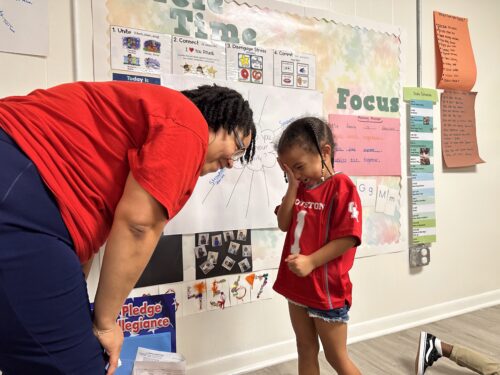
Every stage of childhood presents opportunities for learning and development. One of the most valuable lessons we can teach young children is embracing challenges with confidence and resilience. By encouraging a growth mindset, we help children develop the belief that their abilities can grow through effort, persistence, and learning from mistakes.
A growth mindset is the understanding that skills and intelligence are not fixed traits but can improve with dedication and practice. This perspective encourages children to take on new challenges, learn from failures, and see setbacks as stepping stones rather than obstacles. When children develop a growth mindset early on, they become more confident problem-solvers, creative thinkers, and adaptable learners.
Celebrating children’s successes is natural, but praising effort rather than just results helps them develop perseverance. When children understand that hard work and determination are valued, they are likelier to try new things without fear of failure.
For example, instead of saying, “You’re so smart!” when a child completes a puzzle, try saying, “I love how you kept working on that puzzle until you found the right piece!” This shift in language reinforces that effort and persistence lead to success.
Children thrive when they feel supported throughout their learning journey, not just at the finish line. Children become more engaged and willing to take on challenges when adults acknowledge progress and curiosity rather than only praising completed work.
Parents and caregivers can encourage this by observing and commenting on a child’s process: “I see how carefully you’re stacking those blocks to make sure your tower stays up!” This kind of encouragement builds confidence and helps children take pride in their learning experience rather than rushing to achieve a final product.
Children learn by example. When they see the adults around them approach challenges with patience and persistence, they internalize those behaviors. Narrating your problem-solving process can show children that difficulties are a normal part of learning.
For instance, if you’re struggling to open a jar, you might say, “This lid is really tight, but I’m going to keep trying. Maybe if I tap the edges, it will loosen up.” This simple act demonstrates problem-solving and resilience in real time. Additionally, avoiding negative self-talk—such as saying, “I can’t do this—helps children adopt a more positive approach to challenges.
A child who learns to embrace mistakes and see effort as a path to success is better equipped for lifelong learning. Whether tackling a new subject in school, developing friendships, or navigating unexpected challenges, a growth mindset gives them the confidence to persevere.
At Collaborative for Children, building a strong foundation in early childhood goes beyond academics. It’s about developing children’s skills, mindset, and resilience to grow in any environment.
Download the I Wonder Parenting Handbook